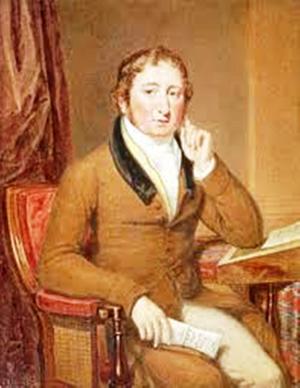| Author: | Louis Becke | ISBN: | 1230000140503 |
| Publisher: | WDS Publishing | Publication: | June 9, 2013 |
| Imprint: | Language: | English |
| Author: | Louis Becke |
| ISBN: | 1230000140503 |
| Publisher: | WDS Publishing |
| Publication: | June 9, 2013 |
| Imprint: | |
| Language: | English |
In other works by the present writer frequent allusion has been made,
either by the author or by other persons, to Captain Hayes. Perhaps the
continuous appearance of his name may have been irritating to many of
my readers; if so I can only plead that it is almost impossible when
writing of wild life in the Southern Seas to avoid mentioning him. Every
one who sailed the Austral seas between the "fifties" and "seventies,"
and thousands who had not, knew of him and had heard tales of him.
In some eases these tales were to his credit; mostly they were not.
However, the writer makes no further apology for reproducing the
following sketch of the great "Bully" which he contributed to the _Pall
Mall Gazette_, and which, by the courtesy of the editor of that journal,
he is able to include in this volume.
In a most interesting, though all too brief, sketch of the life of
the late Rev. James Chalmers, the famous New Guinea missionary, which
appeared in the January number of a popular religious magazine,
the author, the Rev. Richard Lovett, gives us a brief glance of the
notorious Captain "Bully" Hayes. Mr. Chalmers, in 1866, sailed for the
South Seas with his wife in the missionary ship _John Williams_--the
second vessel of that name, the present beautiful steamer being the
fourth _John Williams_.
The second John Williams had but a brief existence, for on her first
voyage she was wrecked on Nine Island (the "Savage" Island of Captain
Cook). Hayes happened to be there with his vessel, and agreed to convey
the shipwrecked missionaries to Samoa. No doubt he charged them a pretty
stiff price, for he always said that missionaries "were teaching Kanakas
the degrading doctrine that even if a man killed his enemy and cut out
and ate his heart in public, and otherwise misconducted himself, he
could yet secure a front seat in the Kingdom of Heaven if he said he was
sorry and was then baptized as Aperamo (Abraham) or Lakopo (Jacob)."
"It is characteristic of Chalmers," writes Mr. Lovett, "that he was able
to exert considerable influence over this ruffian, and even saw good
points in him, not easily evident to others."
In other works by the present writer frequent allusion has been made,
either by the author or by other persons, to Captain Hayes. Perhaps the
continuous appearance of his name may have been irritating to many of
my readers; if so I can only plead that it is almost impossible when
writing of wild life in the Southern Seas to avoid mentioning him. Every
one who sailed the Austral seas between the "fifties" and "seventies,"
and thousands who had not, knew of him and had heard tales of him.
In some eases these tales were to his credit; mostly they were not.
However, the writer makes no further apology for reproducing the
following sketch of the great "Bully" which he contributed to the _Pall
Mall Gazette_, and which, by the courtesy of the editor of that journal,
he is able to include in this volume.
In a most interesting, though all too brief, sketch of the life of
the late Rev. James Chalmers, the famous New Guinea missionary, which
appeared in the January number of a popular religious magazine,
the author, the Rev. Richard Lovett, gives us a brief glance of the
notorious Captain "Bully" Hayes. Mr. Chalmers, in 1866, sailed for the
South Seas with his wife in the missionary ship _John Williams_--the
second vessel of that name, the present beautiful steamer being the
fourth _John Williams_.
The second John Williams had but a brief existence, for on her first
voyage she was wrecked on Nine Island (the "Savage" Island of Captain
Cook). Hayes happened to be there with his vessel, and agreed to convey
the shipwrecked missionaries to Samoa. No doubt he charged them a pretty
stiff price, for he always said that missionaries "were teaching Kanakas
the degrading doctrine that even if a man killed his enemy and cut out
and ate his heart in public, and otherwise misconducted himself, he
could yet secure a front seat in the Kingdom of Heaven if he said he was
sorry and was then baptized as Aperamo (Abraham) or Lakopo (Jacob)."
"It is characteristic of Chalmers," writes Mr. Lovett, "that he was able
to exert considerable influence over this ruffian, and even saw good
points in him, not easily evident to others."















